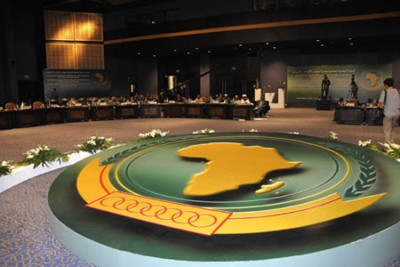
AFRICAN leaders, officials and experts began the Third Pan-African Capacity-Building Forum (CDF3) yesterday in Harare, Zimbabwe, with a warning that capacity deficiencies remain a binding constraint to achieving Africa’s economic and social transformation.
They urged Nigeria and other African countries to tackle the problem in the new context of accomplishing Agenda 2063 and Sustainable Development Goals (SDGs).
The forum is organised by the African Union (AU), its premier capacity-building organ, the African Capacity Building Foundation (ACBF) and Zimbabwe.
The event also coincides with the 25th anniversary of ACBF’s existence.
Agenda 2063 is an approach adopted by the AU on how the continent should learn from the past, build on new progress and exploit possible opportunities available in the immediate and medium term, to ensure positive socio-economic transformation within the next 50 years.
But the SDGs, otherwise known as the global goals, were adopted by world leaders at the United Nations Sustainable Development Summit on September 25, 2015.
They included 17 Sustainable Development Goals (SDGs) to end poverty, fight inequality and injustice, aas well as tackle climate change by 2030. They build on the Millennium Development Goals’ (MDGs) eight anti-poverty targets that the world committed to achieving by 2015.
AU Commissioner, Economic Affairs Dr. Anthony Mothae Maruping, one of the experts at the opening event, noted that “accelerated, inclusive, transformative growth with equity was no longer an option but an imperative for Africa”.
According to him, this would create jobs, tackle poverty, low industrialisation, declining commodity prices and poor infrastructural growth as well as gain rapid, resilient, inclusive and sustainable socio-economic growth.
Relevant stakeholders, he said, agreed that this should be the way forward.
Maruping said such accelerated, inclusive and transformative growth would entail building productive capacities, strengthened productivity, high investment rate, diversification and value addition in all sectors, accelerated integration and increased intra-regional and global trade.
But the leaders noted that these require critical, appropriate and adequate capacity to achieve.
“Currently, the capacity deficit in Africa, as ACBF was to find out, is enormous for purposes of achieving objectives and goals of Agenda 2063. In addition, whatever capacity that is built must be sufficiently synchronised or aligned with the needs for transformation. Whatever capacity has been built should also be retained. Better still, focus should be on building capacity that builds further capacity to avoid erosion and ensure sustainability,” the AU commissioner stressed.
Executive Secretary Prof. Emmanuel Nnadozie, in his address, noted that capacity building actors on the continent like the foundation have helped to build capacity over the years.
“This is more the reason for celebrating our achievements this far,” he said.
However, he agreed that capacity remained the missing link in achieving the growth agenda on the continent.
“Africa still needs to develop the capacity to successfully design, implement and monitor its policy measures and reforms.
“In our 25 years, we have learnt that institutions, such as ACBF, have the important task to not just develop but devise strategies for retaining, harmonising and ensuring that capacity developed is utilised on the continent.
He listed ACBF’s contribution in strengthening institutional capacities as: (1) the development, creation and support to autonomous think tanks, which conduct context-specific research; (2) the creation of knowledge sharing and peer-learning platforms; (3) the investment in data collection through the Africa Capacity Report; and (4) the investment in education and training via ACBF-supported training programmes.





